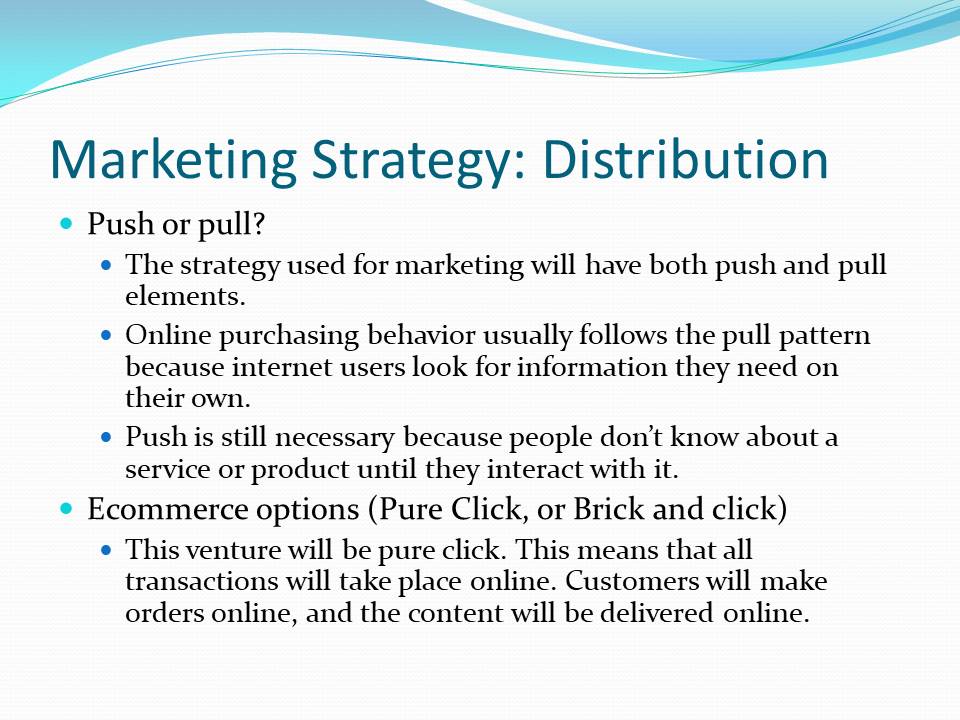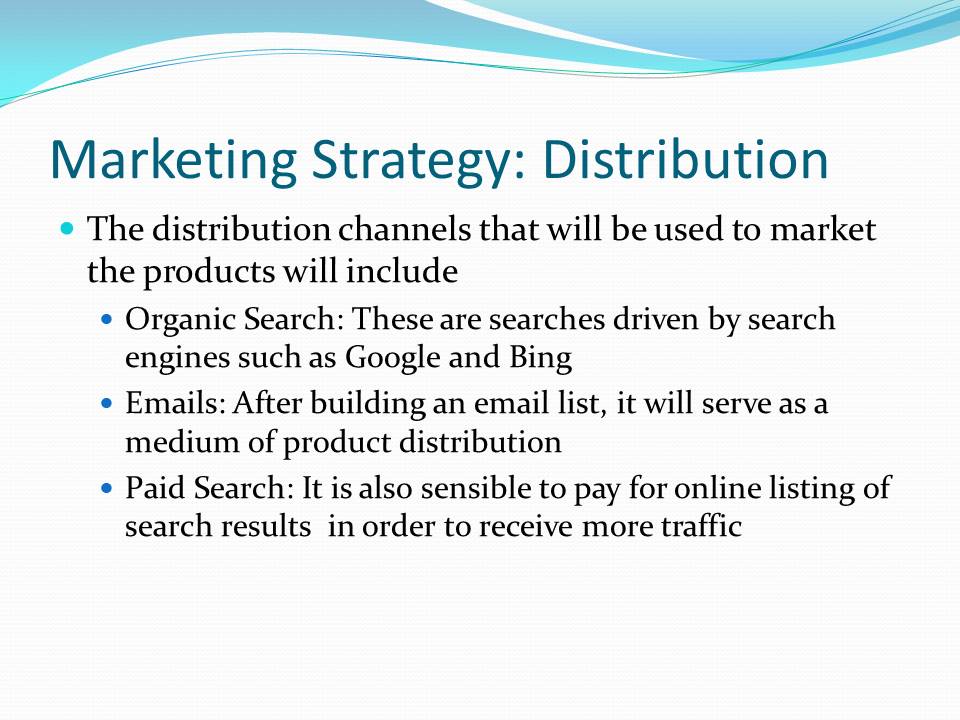Marketing
Demand for online content is increasing as the internet becomes more accessible to an increasing number of people worldwide.
The is a large quantity of online content touching on diverse subjects.
The two main challenges with large portions of existing content are as follows:
- Poor quality website content not optimized for readers.
- Low suitability of the content in regards to the needs of readers.
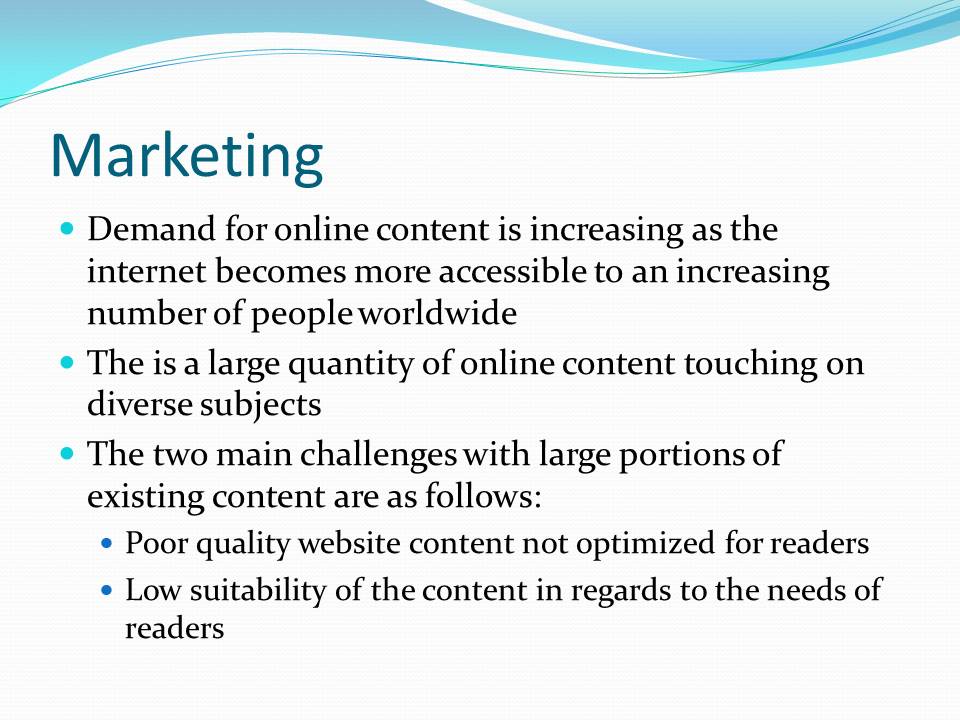
Customer Need
Many business owners aim at connecting with online audiences in order to convert them to customers via their blogs and websites.
Few businesses can afford to maintain a full time employee to handle online content development.
Therefore businesses lack the resources to attract and maintain the attention of their online audiences.
If such businesses had access to valuable and relevant content, they would be willing to pay for it in order to maintain their online presence.
This creates a demand for suitable high quality content by businesses that lack the internal capacity to develop such content.
The Need for High Quality Web Content:
- Quality content is necessary for the conversion of web traffic into an engaged audience.
- Quality content earns the confidence of the people who visit a specific website. This helps a business establish itself as an authority in its business niche .
- Quality content makes it easy for customers to distinguish a specific company from its competitors. Think Branding
- Quality content makes visitors to a website feel rewarded for visiting the site. This sense of satisfaction is vital in moving the audience down the sales funnel.
The Need for Relevant Web Content:
- While the internet contains information about everything, people surf only websites that are relevant to their needs.
- Relevance in this case means:
- Content that answers the specific concerns of the people who visit a website.
- Content presented in a manner that the audience identifies with.
- Many businesses lack the resources needed to develop content that meets the needs of their prospects, but can afford to pay an external content developer on project basis.
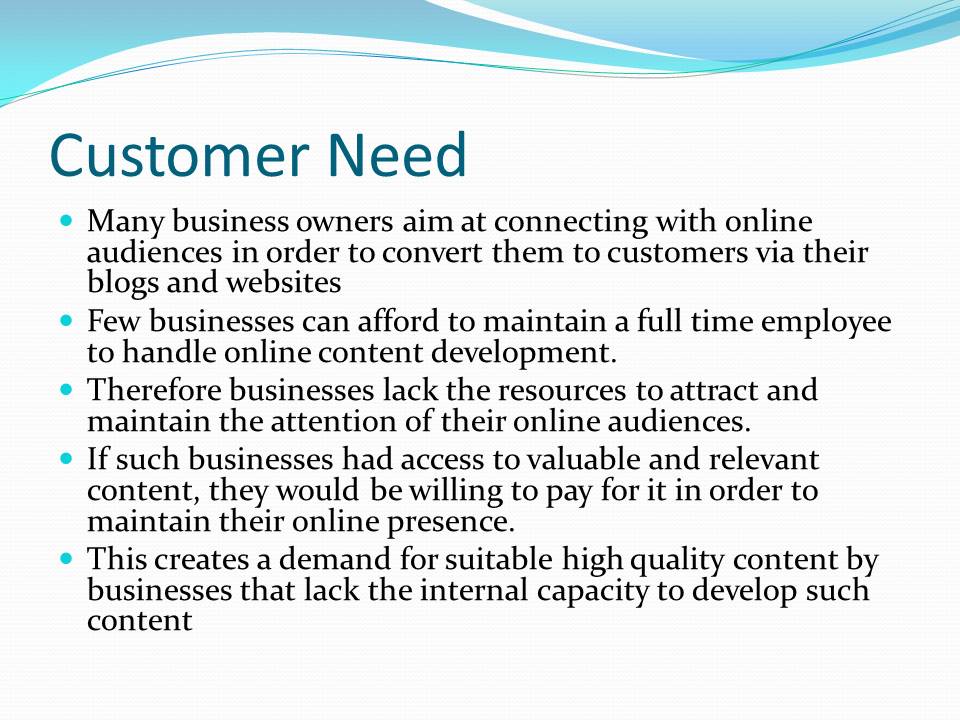
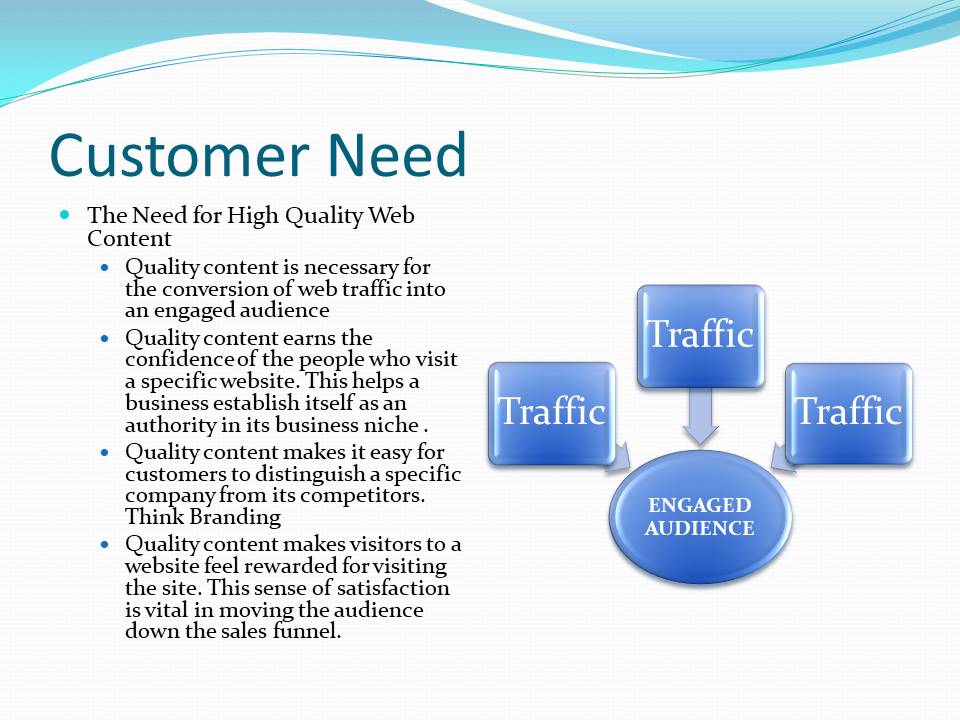
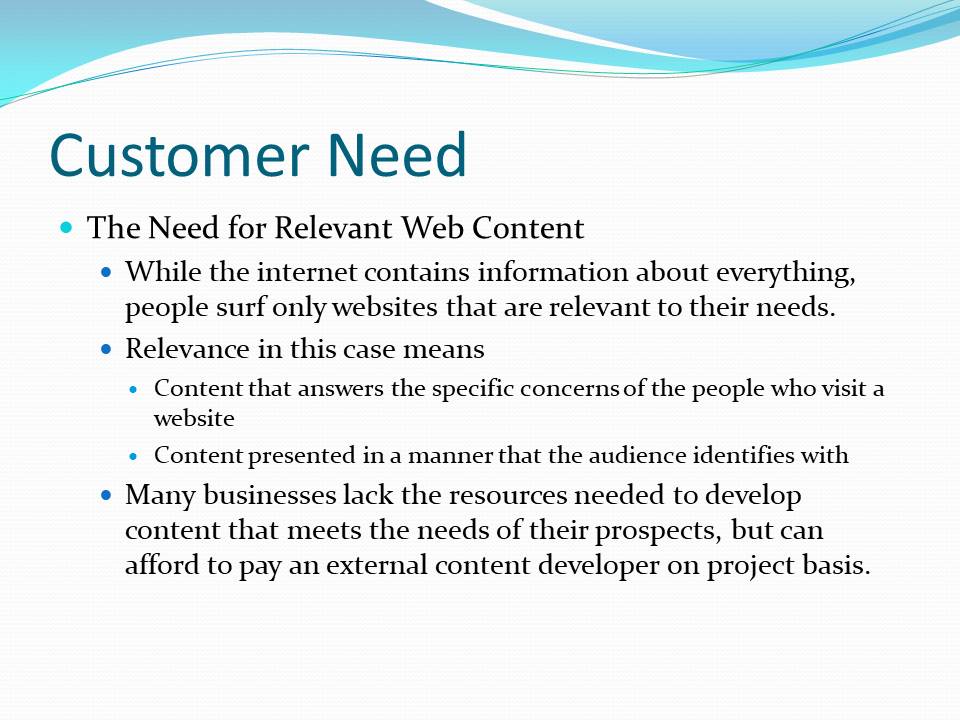
Market Analysis
The Product Adoption process
- Awareness: Customer learns about the existence of the product.
- Customers will learn about the service via online tools, and via eWOM.
- Interest: Customer takes an interest in the product.
- Evaluation: Customer evaluates the product based on existing needs.
- Trial: The customer tries out the product to see the potential results.
- Adoption: The customer starts using the product with dedication.
Market Opportunity Analysis
Benefits Articulation
Every business that has an online presence would like to get business from online traffic. It is therefore easy to communicate the benefits of outsourcing content development.
Access to Target Market
This business service targets business with an online presence. Its easy to access such businesses via the contacts posted on their existing sites.
Internal Capacity to Deliver Promised Value
There is sufficient capacity to deliver fresh content, whether blog articles, white papers, or website text.
Generic Strategy Choice
The service targets businesses that require the services of external content developers because they lack the resources and capacity to develop high quality and relevant content.
Since content must be unique, it is impossible to use a mass market strategy to serve this niche.
In addition, it is not possible to compete on cost and have a quality focus.
Therefore the best generic strategy is differentiation.
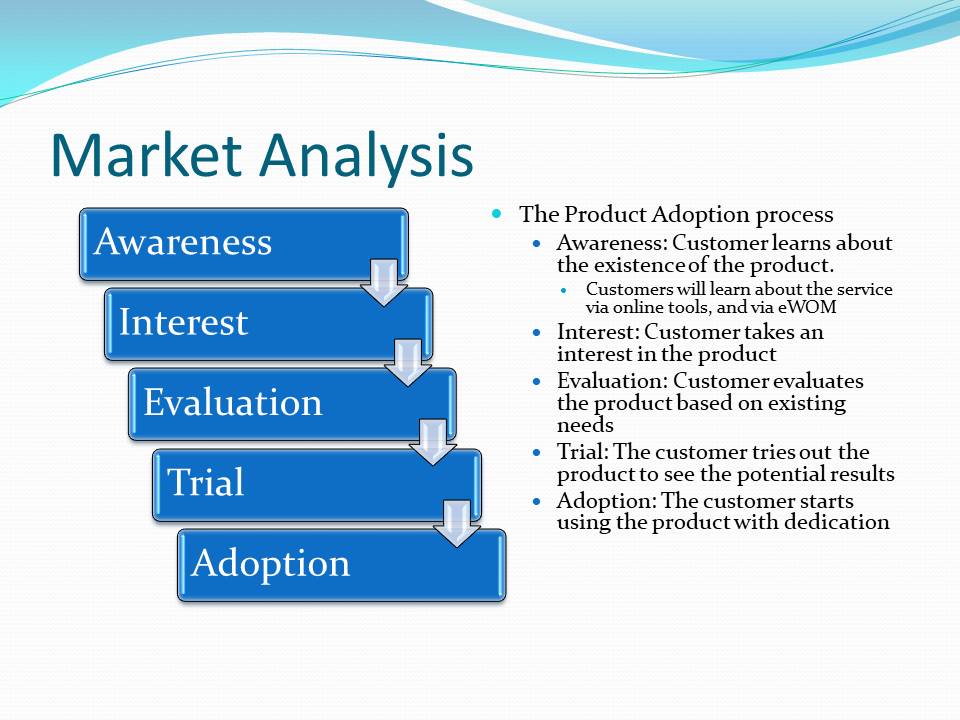
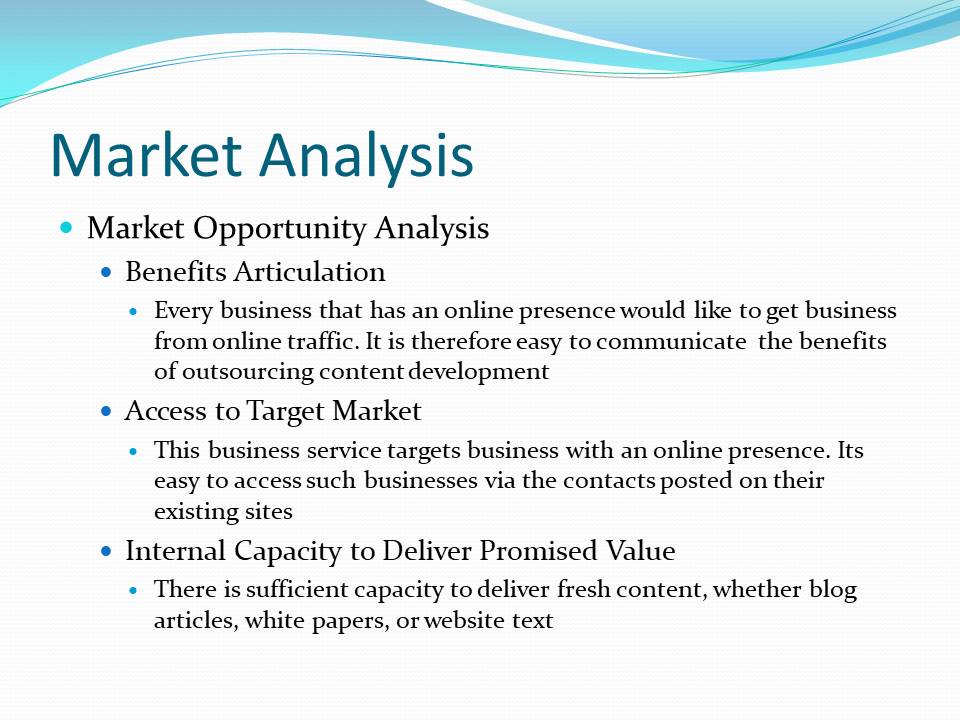
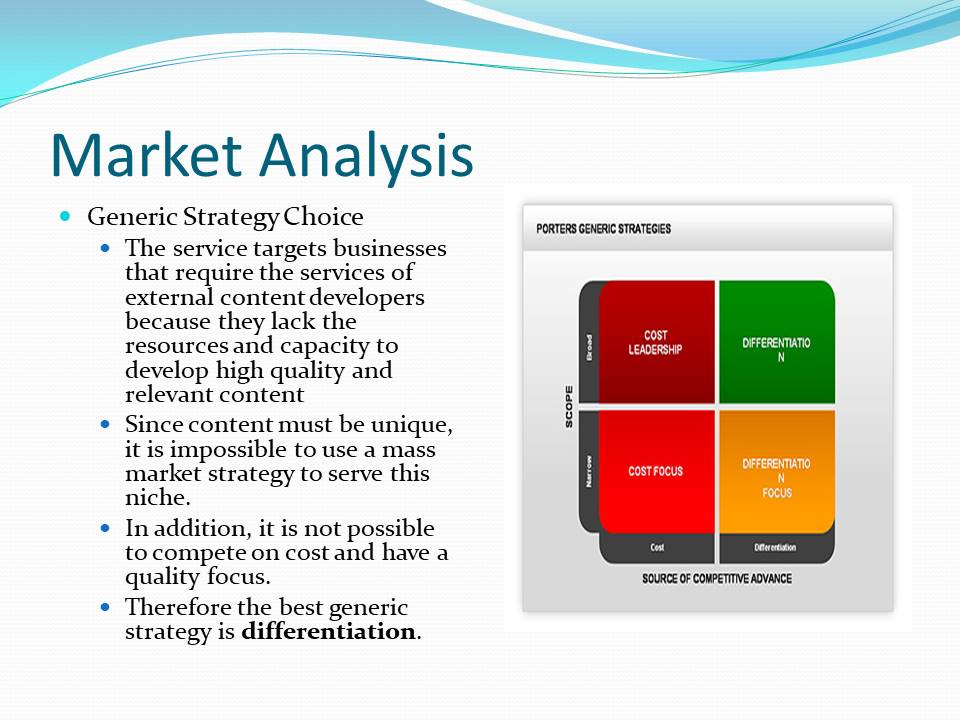
Value Creation
Choosing Value
Value in the context of this business include the following three aspects:
- An Engaged Audience: High quality and relevant online content will help businesses to transform their web traffic into engaged audiences.
- Online referrals: Business will get more referrals via Electronic Word of Mouth (eWOM), which will increase the size of the audience.
- Sales funnel: This service will also increase the number of prospects entering the sales funnel from online sources.
Providing Value: Value will be provided to business in the following ways
- All the content will be optimized for search engine listing (SEO).
- The content will be based on market research.
- The business will aim at having a fast turnaround in content development to enable businesses to take advantage of emerging business opportunities.
Communicating Value
- Sales letters: Each prospect will get a sales letter delivered via email discussing the benefits of outsourcing content creation.
- SEO rankings reports: Each prospect will get an SEO ranking report developed using online web ranking resources from alexa.com.
- Social media presence analysis: The prospect will also get a free report with content recommendations analyzing his social media presence.
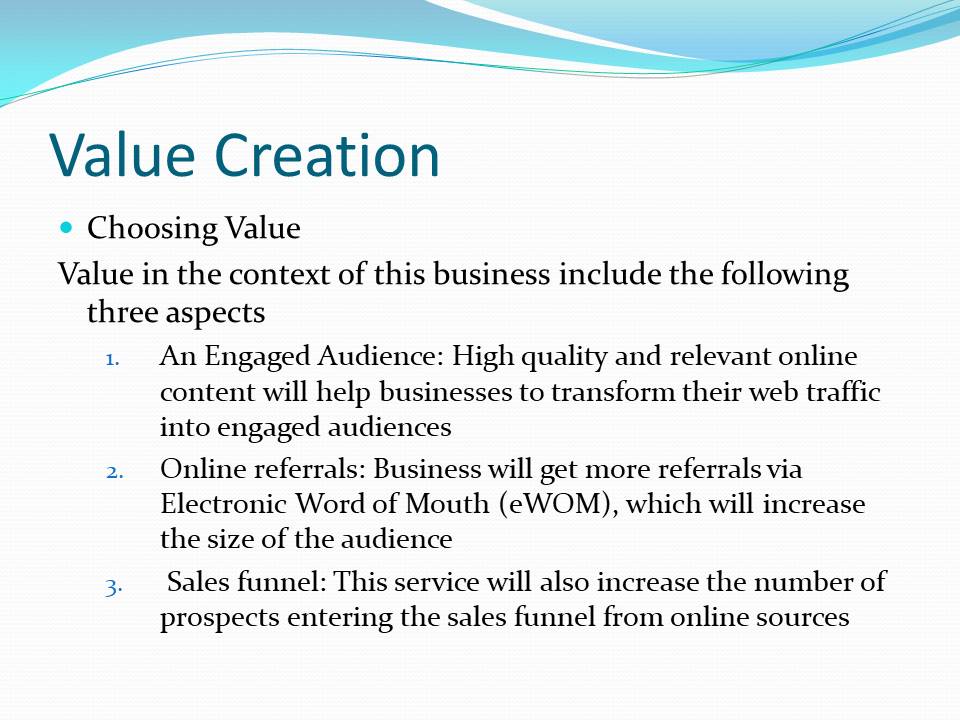
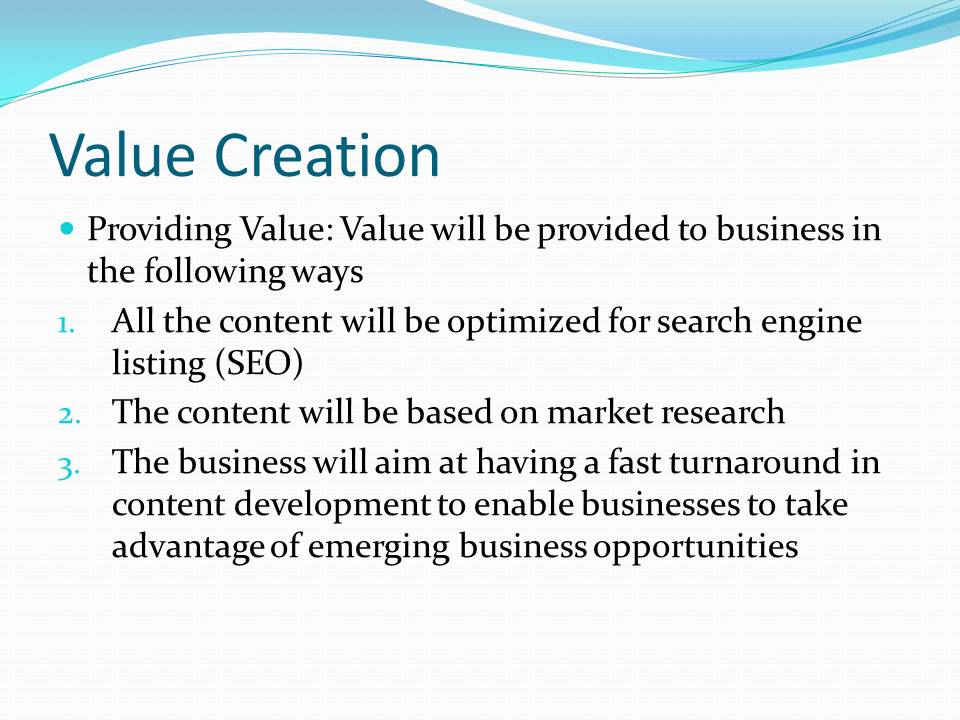
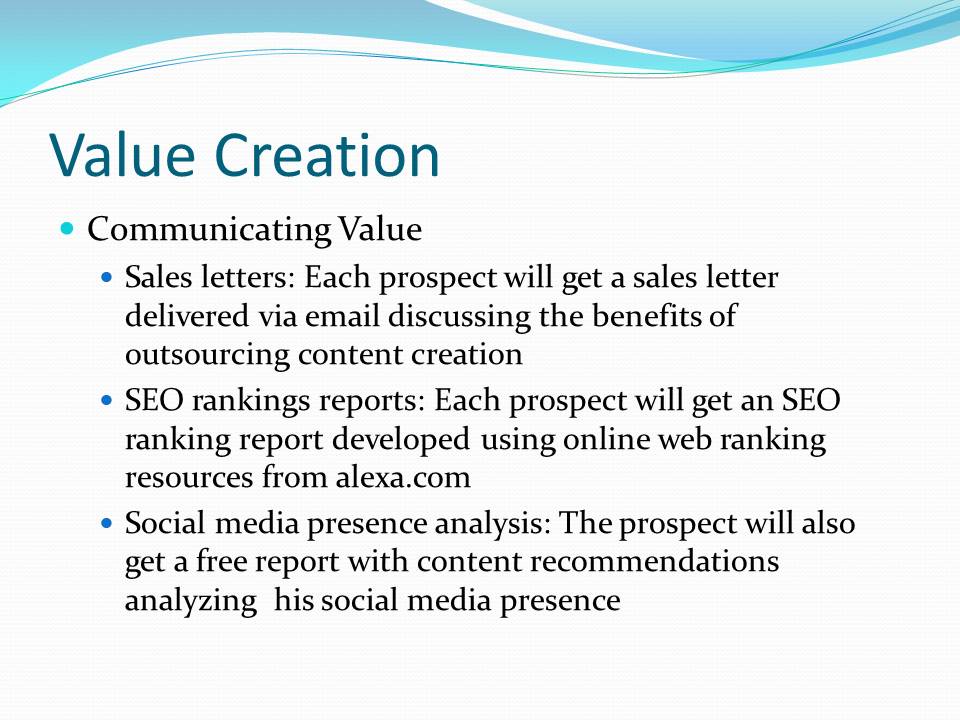
Marketing Strategy: Product
The product developed for distribution to companies seeking to expand their web presence is written content.
The content takes the following forms:
- Website Content: The text used on the corporate or business website of a company.
- Articles: These may be used as blog posts, or as articles for online distribution.
- Social Media Post: This include one liners that may be used in social media outlets such as Face book and Twitter.
- White Papers: These are information packs written in essay format containing useful information that would assist readers to make decisions regarding a particular product or service.
Product Features
SEO: The content developed for all business will include Search Engine Optimization (SEO) features.
The content will have high writing standards that include:
- Excellent Grammar.
- Web friendly structure suited for browsing and skimming.
- Informative content.
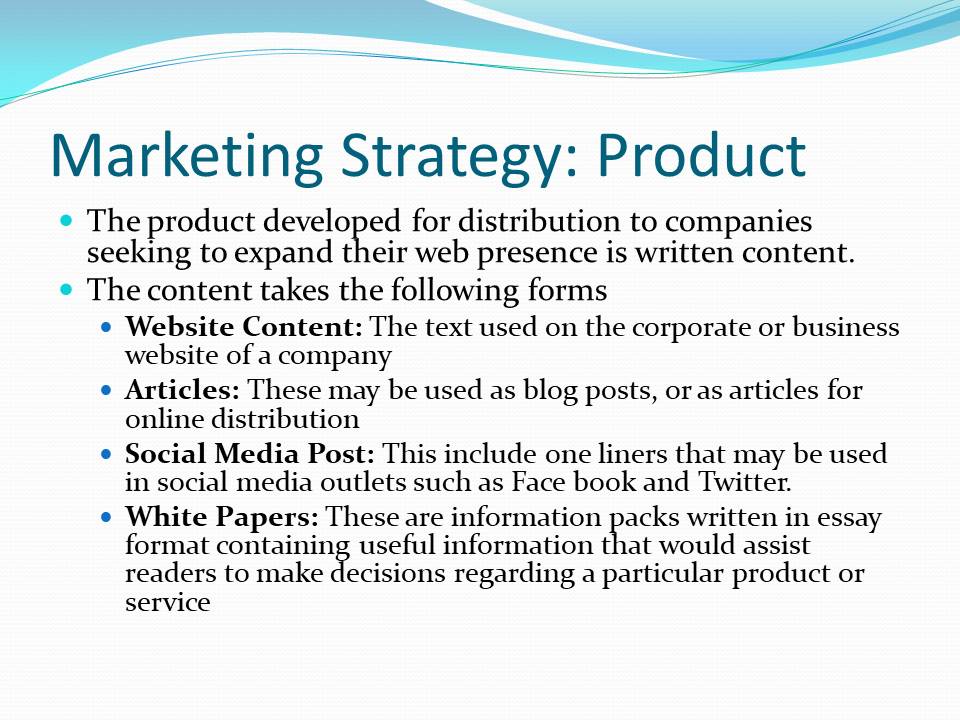
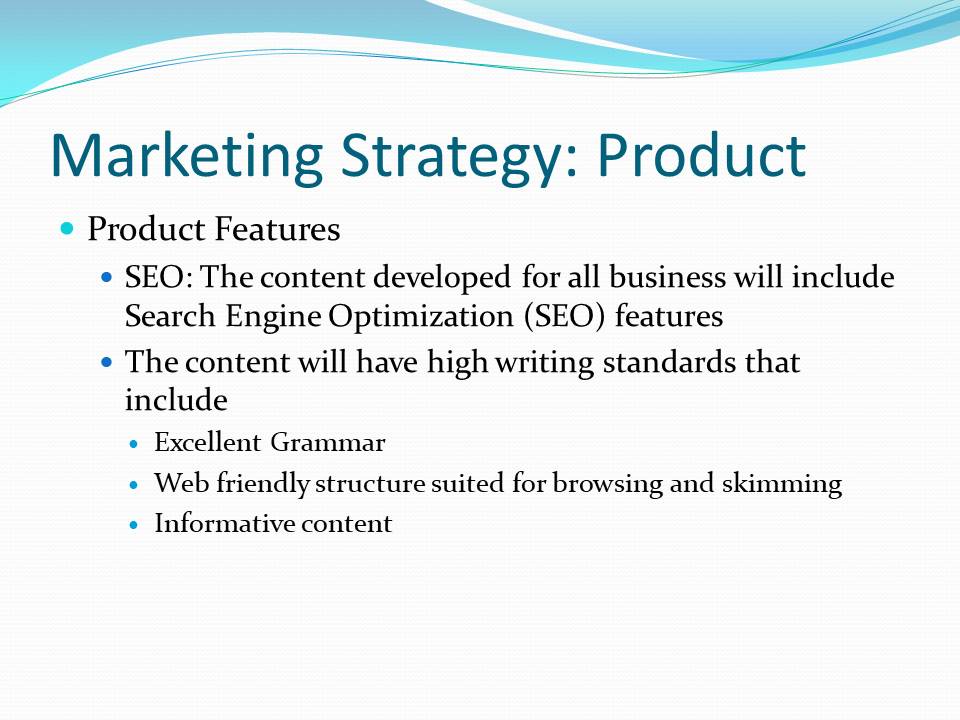
Marketing Strategy: Price
The generic strategy chosen (Differentiation) will influence the pricing structure. Usually the cost of producing products based on differentiation strategy results in premium pricing.
The second consideration for the pricing is perceived value pricing. The value of high quality content is very high for any business seeking to create traffic and to convert it to an engaged audience. If the content can deliver this type of value, then business owners would be willing to pay a premium for it.
Setting the Price
- Price Objective: The Price objective is to find a premium price point that makes sense to medium sized business owners.
- Demand: The demand for good content is high, and it is recurring.
- Costs of Production: The main resource needed to develop good quality content is time.
- Competition: The main source of competition is from content farms, and from freelancers.
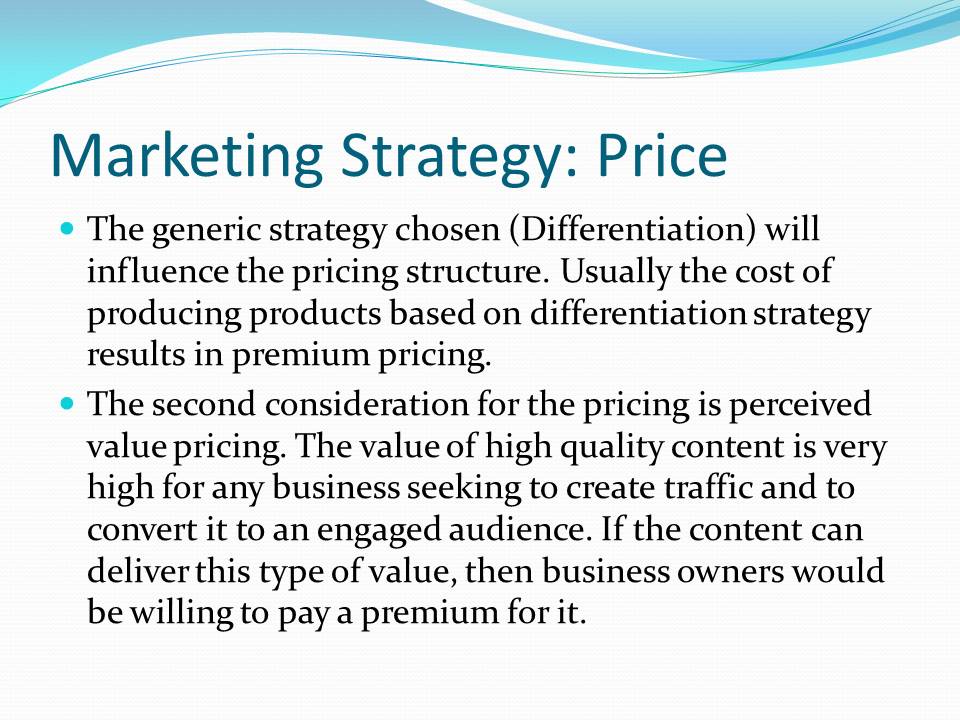
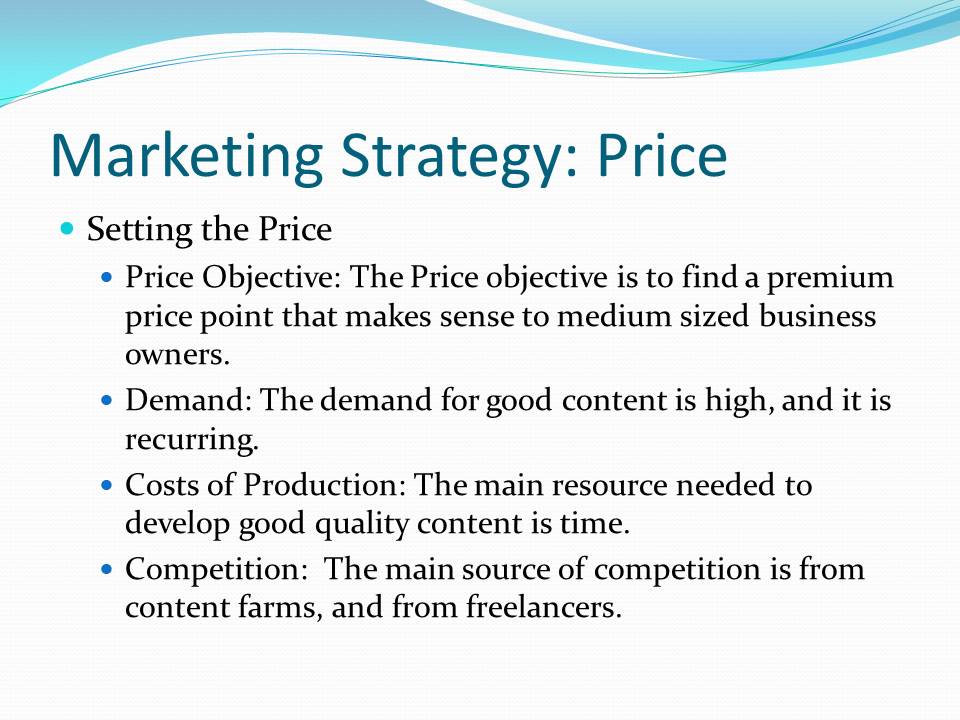
Marketing Strategy: Promotion
- Advertising: This will take place using paid search to increase the conversion rates.
- Sales promotion: In the initial stages, companies will have access to full services offered by the company at cost price.
- Events and experiences: The company will collect event reports and experiences that describes the benefits of the product in order to educate new prospects based on the experience of existing clients.
Effective Media Communications
The target audience for the promotion efforts are decision makers in small and mediums sized companies. This includes the CEOs and the marketing managers.
The objectives of the promotion exercise is to position the company as a reliable content provider.
The communications will rely on online platforms.
The main communication channel will be the internet.
The overall budget for the marketing exercise will be based on the performance of the company in the last quarter.
The media mix will include the use of the internet. The main channels will be:
- Email.
- Social media.
The results of the exercise will be an indicator of the success of the promotion exercise.
- Direct marketing: The company will identify potential clients and make contact either via phone or email.
- Interactive marketing: This will entail taking calls over skype and building real time chat facilities into the company’s website.
- Word-of-mouth marketing: referrals from satisfied customers will be a reliable promotion channel. This also includes eWOM.
- Personal selling: Sales representatives and other company personnel will be involved in direct selling of the products through their online accounts and social media presence.
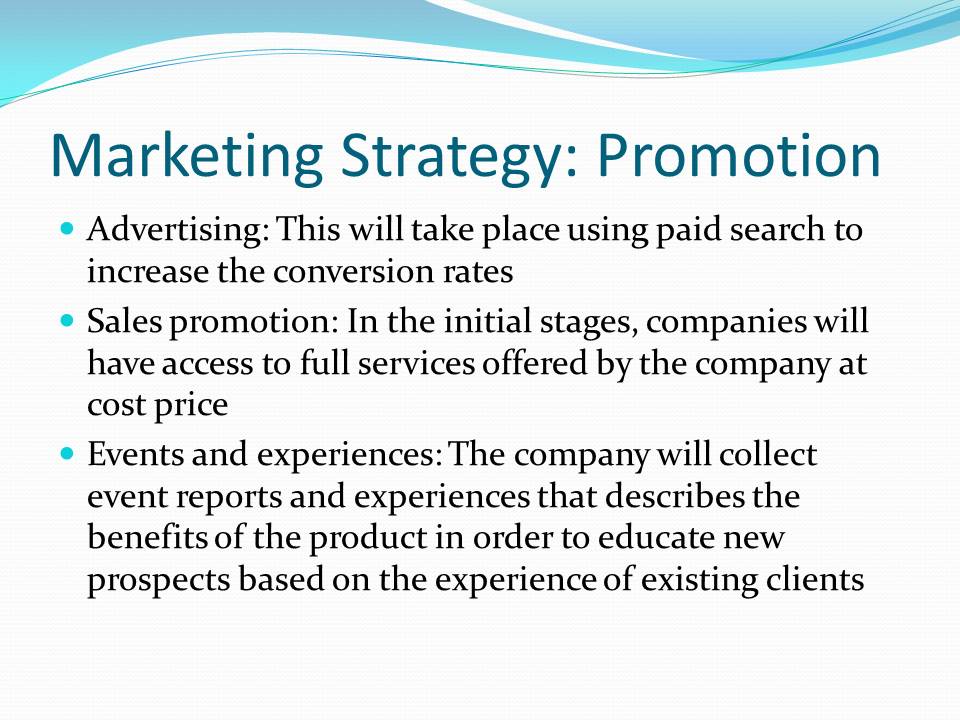
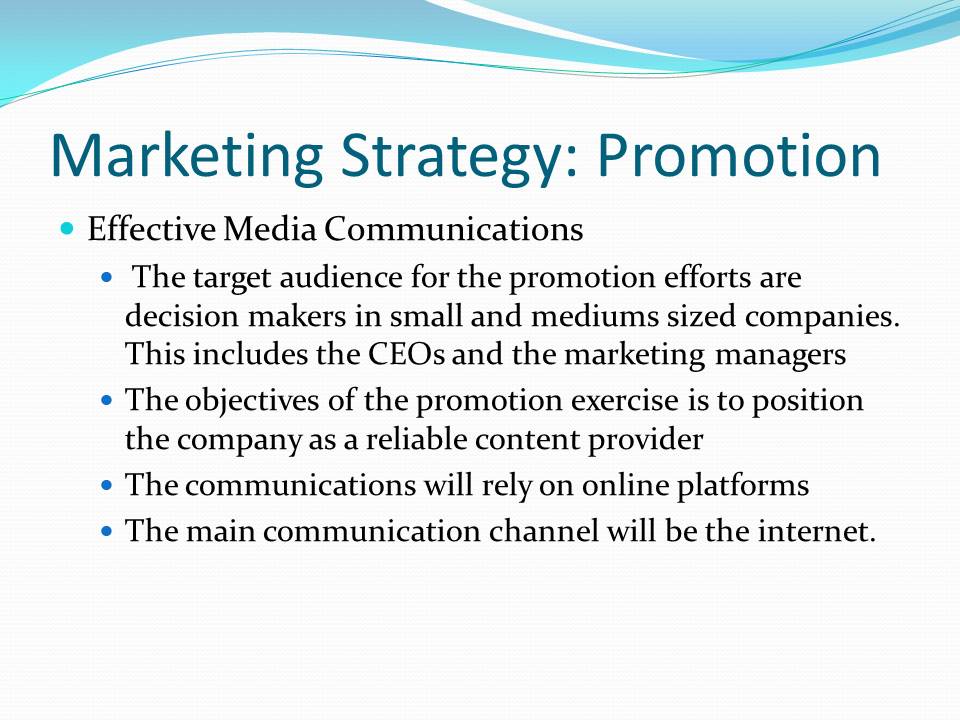
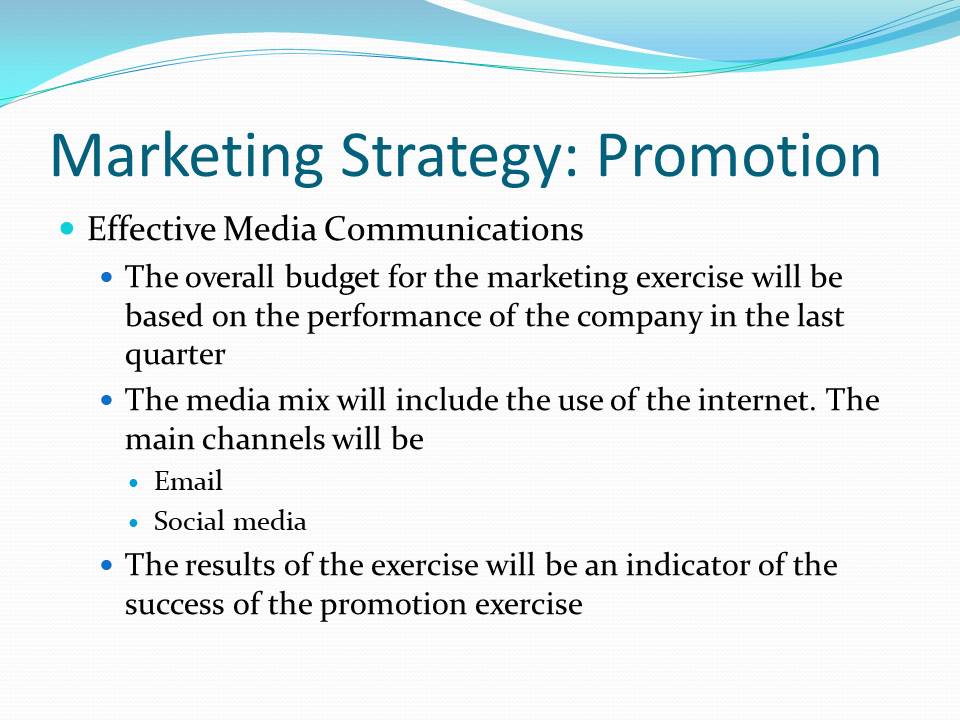
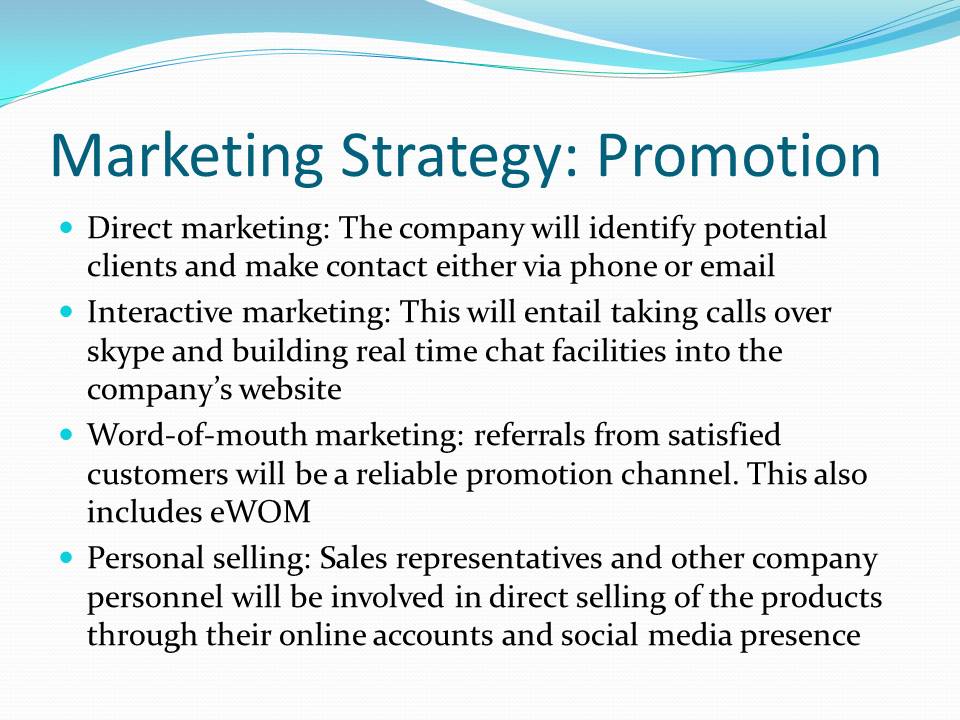
Marketing Strategy: Distribution
Push or pull?
The strategy used for marketing will have both push and pull elements.
Online purchasing behavior usually follows the pull pattern because internet users look for information they need on their own.
Push is still necessary because people don’t know about a service or product until they interact with it.
Ecommerce options (Pure Click, or Brick and click)
This venture will be pure click. This means that all transactions will take place online. Customers will make orders online, and the content will be delivered online.
The distribution channels that will be used to market the products will include:
- Organic Search: These are searches driven by search engines such as Google and Bing.
- Emails: After building an email list, it will serve as a medium of product distribution.
- Paid Search: It is also sensible to pay for online listing of search results in order to receive more traffic.
